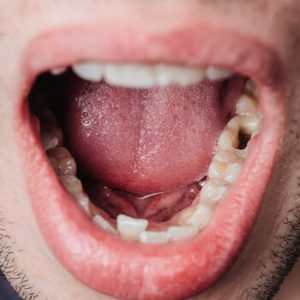Contents
Tooth pain is often brushed off as something minor, especially when people are busy or nervous about dental visits. But in rare cases, what begins as a simple tooth infection can lead to a life-threatening condition known as sepsis. If you’re wondering what are the first signs of sepsis from a tooth abscess, this article will walk you through the early warning signs and why prompt action matters.
What Is a Tooth Abscess?
A tooth abscess is a collection of pus caused by a bacterial infection, usually resulting from tooth decay, dental trauma, or untreated gum disease. When bacteria enter the tooth pulp, the soft tissue inside the tooth,it can cause a dental infection. Left untreated, the infection may spread beyond the affected tooth into the surrounding bone, soft tissues, and bloodstream.
Most dental abscesses can be managed with professional dental treatment. However, the situation becomes dangerous when bacteria enter the bloodstream and lead to a full-body reaction called sepsis.
What Is Sepsis?
Sepsis is the body’s immune response to a severe infection. Rather than simply fighting off the bacteria, the immune system goes into overdrive, attacking its own tissues and organs. When caused by an infected tooth, this condition is sometimes referred to as dental sepsis.
Sepsis can result in organ failure, low blood pressure, impaired lung function, and death if not addressed quickly. People with weakened immune systems, heart disease, or those who delay treatment are at higher risk.
What Are the First Signs of Sepsis from a Tooth Abscess?

Rapid Heart Rate and Breathing
A fast heart rate and rapid breathing are often the earliest signs of sepsis. If you feel breathless even while resting or notice your pulse racing, it may signal that your body is fighting a serious infection.
High or Low Body Temperature
Sepsis may present with a very high fever or, in some severe cases, a drop in body temperature. Either extreme should be taken seriously, especially after a recent dental issue.
Confusion or Difficulty Staying Awake
If you feel unusually sleepy, confused, or find it hard to stay awake, it could be a sign that your brain is being affected by the infection.
Low Blood Pressure
Sepsis can cause dangerously low blood pressure, which limits blood flow to vital organs. This may lead to dizziness, fatigue, and fainting.
Cool, Clammy, or Pale Skin
When blood circulation is reduced, your skin may feel cold or look pale or mottled. If this occurs alongside other symptoms, urgent care is needed.
Severe Tooth Pain and Facial Swelling
With a dental abscess, worsening pain and visible swelling around the face or jaw may mean the infection is spreading. Swelling near the neck or eyes is particularly concerning.
Swollen Lymph Nodes and Red Gums
Swollen lymph nodes in the neck and red, inflamed gums are signs that your body is trying to fight the dental infection.
Breathing Difficulties
If the infection affects your sinus cavity or spreads to the lungs, you may develop breathing difficulties. This symptom should never be ignored.
How a Tooth Infection Can Lead to Sepsis
When a dental infection spreads beyond the tooth root and surrounding tissues, bacteria can enter the bloodstream. This can lead to widespread inflammation throughout the body and begin to affect major organs such as the lungs, heart, or kidneys.
Although sepsis is more commonly linked to urinary tract infections or pneumonia, a tooth abscess is a serious and often underestimated source.
Why Early Treatment Is So Important
When detected early, sepsis can be managed successfully with medical intervention. If sepsis is suspected, immediate medical attention is critical. Treatment often includes IV fluids, antibiotics, oxygen therapy, and sometimes surgical procedures like tooth extractions or removal of infected tissue.
Early intervention can mean the difference between a full recovery and life-threatening complications.
How to Prevent Sepsis from a Tooth Abscess
The best defense is prevention. Here are some tips to avoid dental infections that could lead to sepsis:
Maintain Good Oral Hygiene
Brush your teeth at least twice a day using fluoride toothpaste and floss daily. This helps prevent tooth decay and gum disease, which are the leading causes of dental abscesses.
See Your Dentist Regularly

Don’t Ignore Dental Pain
Persistent tooth pain, especially if it’s throbbing or spreading, should not be ignored. Even mild discomfort could indicate an underlying infection.
Watch for Facial Swelling
Any swelling in the face, jaw, or neck should be evaluated immediately. If it’s accompanied by a fever or difficulty swallowing or breathing, seek urgent treatment.
Recognizing the Symptoms Can Save a Life
A dental abscess might not seem like a big deal at first, but when the infection progresses, it can trigger a chain reaction that affects your entire body. Being aware of the first signs of sepsis, such as rapid breathing, confusion, low blood pressure, or facial swelling, can lead to timely medical care.
If you or someone you know shows signs of sepsis following dental pain or an infected tooth, don’t delay. Seek medical attention immediately and follow up with your dentist to manage the source of the infection.
By staying alert and acting quickly, you can protect not just your teeth, but your life.
References:
https://www.mayoclinic.org/diseases-conditions/tooth-abscess/symptoms-causes/syc-20350901
https://my.clevelandclinic.org/health/diseases/10943-abscessed-tooth
https://www.medicalnewstoday.com/articles/symptoms-of-tooth-infection-spreading-to-the-body
https://penndentalmedicine.org/blog/symptoms-of-tooth-infection/
